Regional
Pakistan clinches last-gasp $3 billion IMF bailout
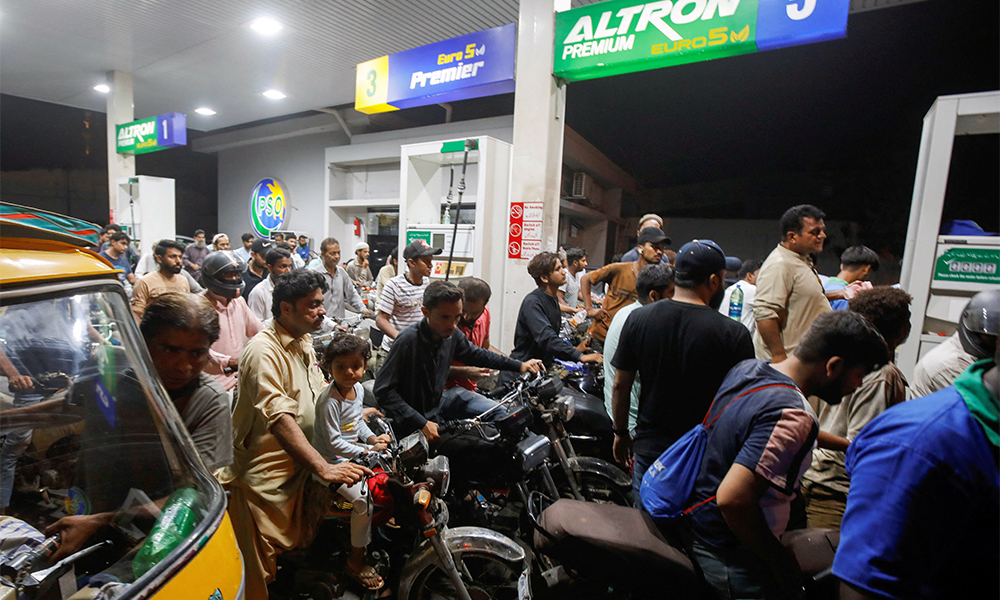
Pakistan secured a badly-needed $3 billion short-term financial package from the International Monetary Fund on Friday, giving the South Asian economy respite as it teeters on the brink of default.
In a long-awaited decision for Pakistan, the IMF said it had reached a staff-level deal with the 220 million nation, which will now be subject to approval by its board in July.
The new nine-month standby arrangement came hours before a current IMF agreement expires, offering relief to Pakistan, which is battling an acute balance of payments crisis.
Prime Minister Shehbaz Sharif said it would put Pakistan “on the path of sustainable economic growth”.
With sky-high inflation and foreign exchange reserves barely enough to cover one month of controlled imports, which analysts say Pakistan’s economic crisis could have spiraled into a debt default in the absence of an IMF deal, Reuters reported.
The deal came only after Sharif held marathon meetings with IMF head Kristalina Georgieva on June 22, which he said represented “a turning point” as the fund’s managing director had not initially appeared very forthcoming.
Pakistan will receive formal documents on the deal later on Friday, Finance Minister Ishaq Dar told Reuters, which he said he would “sign, seal and return by tonight”.
The new deal, which Dar said on Thursday was expected soon, will disburse an upfront amount of $1.1 billion shortly after the IMF board’s meeting in July, he said.
Dar said Pakistan aimed to take the central bank’s foreign exchange reserves to $14 billion by the end of July. “We have stopped the decline, now we have to turn to growth,” he added.
Pakistan’s sovereign dollar bonds were trading higher after the announcement, with the 2024 issue enjoying the biggest gains, up more than 8 cents at just above 70 cents in the dollar, according to Tradeweb data.
The gains were most pronounced in shorter-dated bonds, reflecting lingering skepticism over the longer-term fiscal outlook for the country.
The $3 billion IMF funding is higher than expected as it looks set to replace the remaining $2.5 billion from a $6.5 billion longer-term Extended Fund Facility agreed in 2019.
The deal will also unlock other bilateral and multilateral financing. Long-time allies Saudi Arabia, the UAE and China have already pledged or rolled over billions of loans.
“This will support near-term policy efforts and replenish gross reserves,” the IMF said.
The new arrangement builds on the 2019 programme, IMF official Nathan Porter said in a statement, adding that Pakistan’s economy had faced several challenges in recent times, including devastating floods and rising commodity prices.
“Despite the authorities’ efforts to reduce imports and the trade deficit, reserves have declined to very low levels. Liquidity conditions in the power sector also remain acute,” Porter said.
“Given these challenges, the new arrangement would provide a policy anchor and a framework for financial support from multilateral and bilateral partners in the period ahead.”
Porter also pointed out the power sector’s buildup of arrears and frequent power outages, Reuters reported.
Reforms in the energy sector, which has accumulated nearly 3.6 trillion Pakistani rupees ($12.58 billion) in debt, has been a cornerstone of the IMF talks.
The IMF said it would want steadfast policy implementation by Pakistan to overcome challenges, “particularly in the energy sector”, where it expects a rise in electricity prices.
Dar confirmed that the hike will come ahead of the IMF board review of the bailout, saying the rebasing to be done in July will make about three to four rupees a unit difference.
“Reform does not, must not, mean raising tariff endlessly,” Pakistan’s Minister for Power Khurram Dastgir told Reuters.
With the tenure of the current government ending in August, Dastgir said it had put in place an “aggressive medium-to-long-term plan” to increase renewable energy which was only possible if long-term assistance is available.
Reforms taken
Islamabad has taken measures demanded by the IMF since its mission arrived in Pakistan earlier this year, including revising its 2023-24 budget and a key policy rate hike to 22% in recent days.
It also got Pakistan to raise more than 385 billion rupee ($1.34 billion) in new taxation to meet the IMF’s fiscal adjustments.
The IMF said the central bank should remain proactive to reduce inflation and maintain a foreign exchange framework.
The painful adjustments have already fuelled all time high inflation of 38% year-on-year in May.
“The FY24 budget advances a primary surplus of around 0.4 percent of GDP,” Porter said, adding it will be important that the budget is executed as planned, and authorities resist pressures for unbudgeted spending or tax exemptions.
“This new programme is far better than our expectations,” said Mohammed Sohail of Topline Securities in Karachi, adding there while were a lot of uncertainties on what would happen after a new government comes to power it would “definitely help restore some investor confidence”.
‘Tough journey’ ahead
Meanwhile, on Friday night, Pakistan’s Prime Minister Shehbaz Sharif took to twitter and said while the IMF stand-by agreement “is a much-needed breather, which will help the country achieve economic stability, the nations are not built through loans. I pray for this new program to be the last one.”
He went on to thank Pakistan’s “friends & partners such as China, Saudi Arabia, UAE & Islamic Development Fund for standing by Pakistan at the time of massive economic challenges.
“Under a whole-of-the-government approach, we have worked out an Economic Revival Plan, which will focus on unlocking our strategic potential in agriculture, mine & minerals, defense production & information technology. The Plan will bring up investments of billions of dollars & create job opportunities for four million people.
“It may be a tough journey but as they say, ‘When the going gets tough, the tough gets going’,” he said.
Regional
Arab states condemn Israel’s move to expand powers in occupied West Bank
Israel’s security cabinet approved measures that will make it easier for Jewish settlers to purchase land in the West Bank and grant Israeli authorities greater powers in areas under Palestinian control.
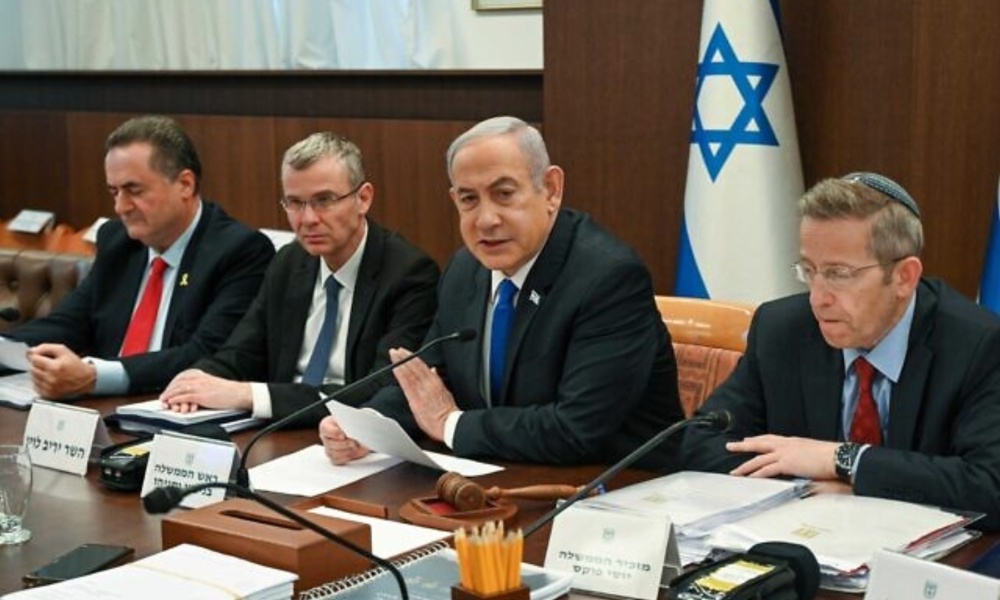
Saudi Arabia, Jordan and the United Arab Emirates led regional condemnation on Monday of Israel’s decision to ease settlement expansion and broaden its authority across the occupied West Bank, a move critics say amounts to de facto annexation.
Israel’s security cabinet approved measures on Sunday that will make it easier for Jewish settlers to purchase land in the West Bank and grant Israeli authorities greater powers in areas nominally under Palestinian control, Reuters reported citing two senior Israeli ministers.
Finance Minister Bezalel Smotrich, an ultranationalist figure in Prime Minister Benjamin Netanyahu’s coalition, said the decisions would “continue to kill the idea of a Palestinian state.”
In a joint statement, foreign ministers from several Middle Eastern and Muslim-majority countries — including Egypt and Turkey — denounced the measures as illegal under international law and warned they would undermine prospects for a two-state solution and regional stability.
Jordan, Egypt, the UAE and Turkey all maintain diplomatic ties with Israel, while Saudi Arabia has said it will not normalise relations without the establishment of a Palestinian state.
Most countries view the West Bank, occupied by Israel since 1967, as the core of a future Palestinian state.
Israeli Defence Minister Israel Katz and Smotrich said the cabinet had repealed a pre-1967 Jordanian-era law that kept land registries confidential and scrapped a permit requirement for land purchases, steps they said would simplify transactions for Jewish buyers.
Settlement watchdog Peace Now said the move violated international law and marked a significant step toward annexation. “This treats the West Bank as normal Israeli territory rather than occupied land,” said Hagit Ofran of the group.
The cabinet also expanded Israeli enforcement powers over water use, archaeological sites and environmental issues into Areas A and B of the West Bank — zones that, under the 1993 Oslo accords, are under Palestinian or joint control. Peace Now said the changes could pave the way for wider demolitions of Palestinian property and further restrictions on Palestinian development.
U.N. Secretary-General Antonio Guterres expressed “grave concern,” warning the measures were eroding the viability of a two-state solution, his spokesperson said.
In Hebron, Palestinians said the decisions would accelerate settlement growth and home demolitions. “It becomes easier to confiscate land, expand settlements and demolish Palestinian homes,” said Issa Amr of the group Youth Against Settlements.
Regional
Iran arrests at least four reform front politicians
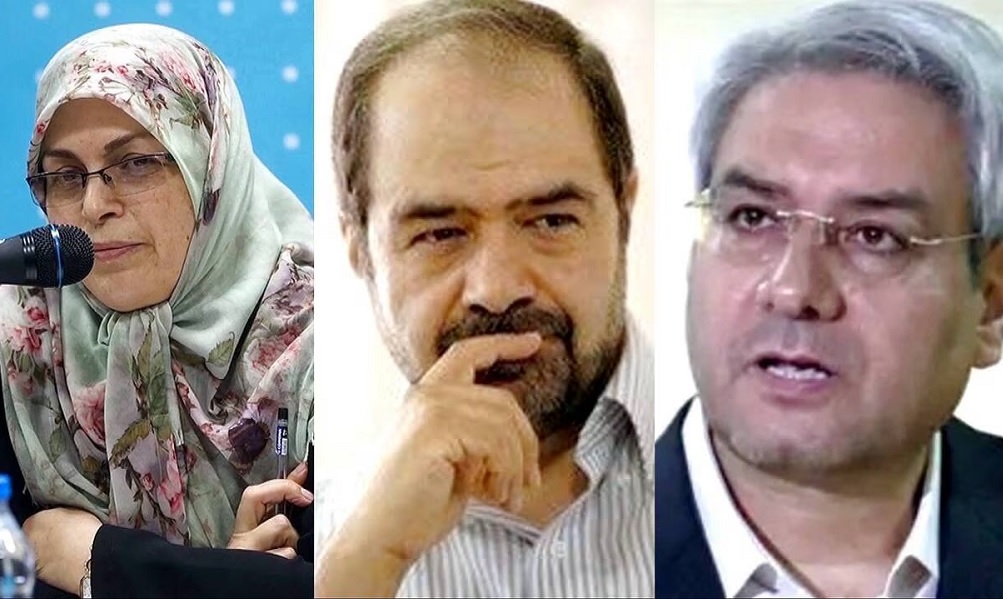
The Islamic Iran Nation’s Union Party sought the release of secretary-general Azar Mansouri, the Shargh newspaper said on Monday, after her arrest along with other members of the Reform Front, an umbrella body of Iranian reformists and moderates.
A campaign of mass arrests and intimidation has led to the arrests of thousands as authorities seek to deter further protests after last month’s crackdown on the bloodiest unrest since the 1979 Islamic Revolution.
On Sunday, state media said three senior figures from Iran’s Reform Front were arrested, among them Ebrahim Asgharzadeh, Mohsen Aminzadeh, and Azar Mansouri, who acts as the front’s head, according to Reuters.
Shargh said at least two more Reform Front members were asked to report to the prosecutor’s office in Tehran’s Evin prison on Tuesday.
The Reform Front’s spokesperson, Javad Emam, was also arrested, Mansouri’s lawyer, Hojjat Kermani, said on Monday, adding that it was unclear what charges faced those detained.
“We basically don’t know what caused these arrests, because the Reform Front has not yet issued a statement about the recent events (protests),” Kermani told the Iranian Labour News Agency (ILNA). “Individuals may have commented on their own.”
On Sunday, the judiciary’s media outlet Mizan said “four important political elements supporting the Zionist (regime) and the United States” were indicted, but gave no details.
Tehran has blamed unrest-related violence on “rioters and armed terrorists” it says were backed by its key enemies, Israel and the United States.
Past Reform Front statements have been highly critical of authorities. After the 12-day war against Israel, its members warned that “incremental collapse” awaited the country if it did not adopt fundamental reforms.
Kermani said the recent arrests were not related to a judicial case launched against the Front after that statement, however.
Regional
Eight killed in explosion in northern China, state media says

An explosion at a small biotech company in northern China early Saturday killed eight people, China’s state media reported on Sunday.
The explosion occurred in Shuoyang in the Shanxi province in the early morning of Saturday, state media reported, according to Reuters.
The legal representative of Jiapeng Biotechnology has been detained and the city has set up an accident investigation team, Xinhua News Agency reported.
The firm is located in a mountain hollow and dark yellow smoke was seen billowing from the accident site, Xinhua said.
Reuters was not able to contact the company, which does not maintain a website. The cause of the reported explosion was not immediately clear.
Founded in June 2025, Jiapeng Biotechnology conducts research on animal feed, coal products and building materials, according to its corporate registration.
-

 Latest News3 days ago
Latest News3 days agoAfghanistan to grant one- to ten-year residency to foreign investors
-

 Sport4 days ago
Sport4 days agoIndonesia shock Japan to reach historic AFC Futsal Asian Cup final
-

 Sport3 days ago
Sport3 days agoIran clinch AFC Futsal Asian Cup 2026 in penalty shootout thriller
-

 Latest News3 days ago
Latest News3 days agoAfghanistan says Pakistan is shifting blame for its own security failures
-

 International Sports2 days ago
International Sports2 days agoWinter Olympics gain momentum as medal table takes shape
-

 Latest News3 days ago
Latest News3 days agoTraffic police receive new cars
-
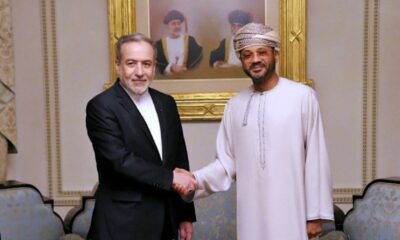
 Regional4 days ago
Regional4 days agoIran’s FM calls Oman-mediated talks with US ‘good start’
-
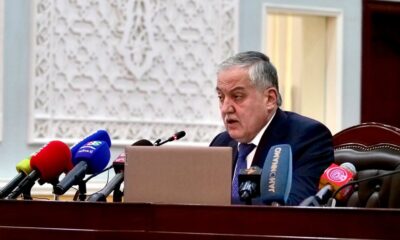
 Latest News2 days ago
Latest News2 days agoTajik foreign minister urges international community to help Afghanistan address its challenges























